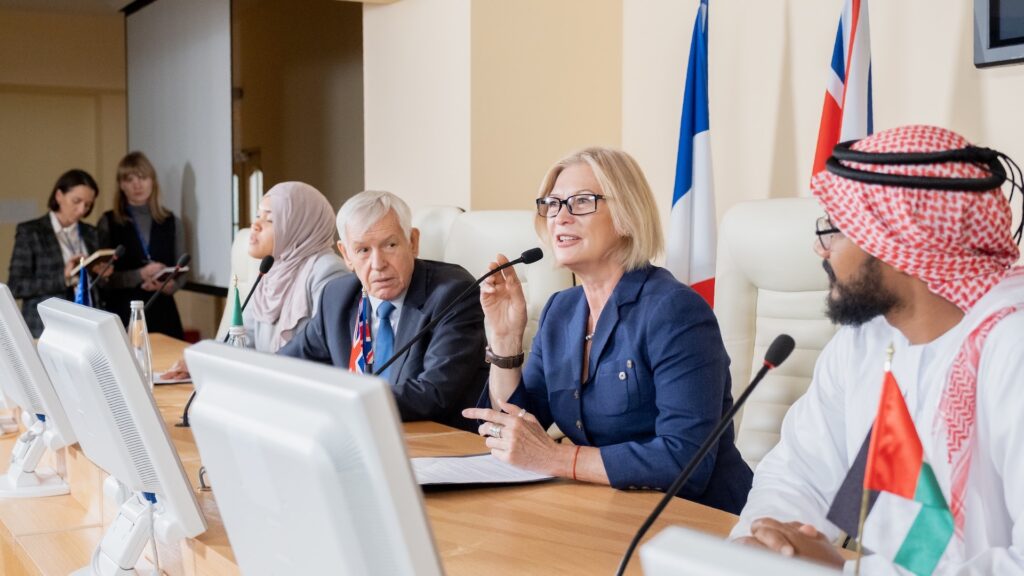As some of my readers may remember, the Diplomatic World holds a dear place in my heart. It was my father’s world, and part of mine for many years. It is here within the realm of diplomats, that intercultural studies were initiated in the 1960s with the pioneering work of American cultural anthropologist Edward T. Hall.
Hall laid the foundation for the first study of nonverbal communication and interactions. He led the Foreign Service Institute Program in Washington, where he helped State Department employees which were given overseas assignments. He saw that these employees clearly were challenged with cultural differences when negotiating with foreigners.
As I mentioned in a previous LinkedIn post, Hall pointed out some peculiar cultural characteristics. Such as the “amount of space that people feel is necessary to set between themselves and others”, a.k.a. “proxemics”. This term is just one aspect of nonverbal communication. This was just the start of understanding the meaning of culture in shaping human interactions, particularly in diplomatic and international contexts.
The start of cultural studies for Diplomats
As Hall wrote candidly in his book, The Silent Language:
“When Americans are sent abroad to deal with other peoples, they should first be carefully selected as to their suitability to work in a foreign culture. They should also be taught to speak and read the language of the country of assignment and thoroughly trained in the culture of the country. All of this takes time and costs money. However, unless we are willing to select and train personnel, we simply sell ourselves short overseas.”
I personally don’t know if it hit any nerves for anyone else, but I believe that for the first time in study of interculturality, the importance of cultural factors in communication was emphasized.
Differences in communication styles, gestures, and norms could lead to misunderstandings between individuals from diverse cultural backgrounds. Hall introduced these concepts such as high-context and low-context communication, exploring how cultural nuances influence the interpretation of messages.
His emphasis on nonverbal communication, personal space, and time perception transformed the way diplomats approached negotiations and engagement with counterparts from different cultures. This established the basis for the first studies on culture’s impact on communication.

Intercultural leadership and other Diplomatic skills
Diplomats are not so different to the private sector or business leaders. The skills that characterize them and are also valuable in the private sector include:
- Communication Skills: Diplomats are experts in intercultural and diplomatic communication. This enables them to effectively communicate with people from different cultures and convey messages clearly and diplomatically.
- Negotiation Skills: Diplomacy involves negotiating agreements and solutions in complex situations. Diplomats are skilled in negotiation, compromise, and seeking mutually beneficial solutions, which is valuable in business decision-making and managing relationships with clients and partners.
- Conflict Resolution Skills: Diplomats often work to peacefully resolve disputes and international conflicts. These skills are transferable to conflict resolution in business environments, where handling difficult situations can be crucial.
- Interpersonal Skills: Diplomacy involves interacting with individuals from diverse backgrounds and cultures. Diplomats develop skills to build relationships and connect with a variety of people, which is valuable in diverse business teams and environments.
- Analysis and Research Skills: Diplomats need to understand political, economic, and social contexts deeply. This capacity for analysis and research can be valuable for market research and competitive analysis in the private sector.
- Time Management Skills: Diplomats often juggle multiple tasks and deadlines in changing environments. These time management and adaptability skills are essential in the business world.
- Adaptability Skills: Diplomats work in different cultures and contexts. The ability to adapt to changing environments and diverse situations is valuable in the dynamic business landscape.
- Networking Skills: Diplomats excel in building and maintaining international networks. These skills are essential in the business world to establish lasting relationships with clients, partners, and collaborators.

We can all learn from diplomats
In a recent interview, Mexico’s Ambassador Marcela Celorio, gave the audience some tips for negotiating in any field:
“Public relations and, specifically, diplomatic relations have an important value. One must always try to be honest with whom you are speaking to. … If you are honest and to the point, and you are trustworthy, building trust is essential. …When I was in San Diego… I had a very good relationship with the people at border control, we kept a good communication and continuously told me what was happening. Thanks to relationships I had built previously. They trusted me. Being honest is very important. Don’t lie, but don’t give more information than what they are asking for.”
Marcela Celorio
This is something we must all apply in both the world of business, as well as in Diplomatic circles. It is not by chance that if one looks for the meaning of the word Diplomat in dictionaries, they’ll find that it is defined as “concerning the profession, activity, or skill of managing international relations”. This can also be part of the definition of today’s Global Leader.

